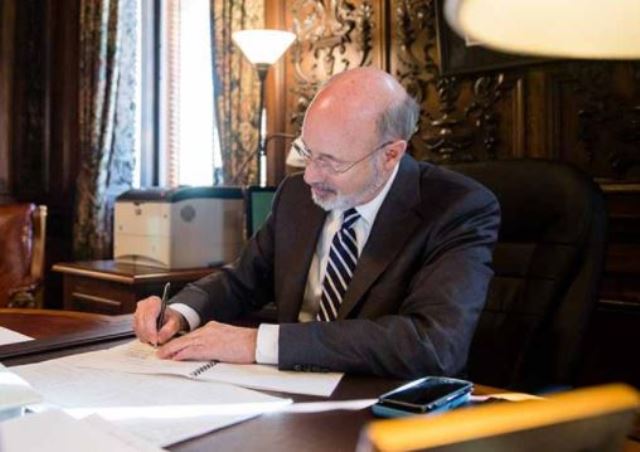HARRISBURG – Gov. Tom Wolf today signed into law House Bill 3, a historic reform to health insurance that creates an online exchange operated by the state in lieu of the federal government.
The legislation provides for lower premiums and increased access to health insurance by developing a state-based health insurance exchange and a new reinsurance program.
The state-based exchange is expected to save money for those purchasing plans on the exchange.
“This bill is a huge step toward making health insurance affordable and effective for all Pennsylvanians,” Wolf said. “It’s pretty rare for a program to come along where everyone pays less, but that’s exactly what this does.
“And I’m so proud of my colleagues for recognizing this as a priority and moving it along quickly. I want Pennsylvania to be a leader on health care reform, and I want no Pennsylvanian worrying about affording the care they or their loved ones need.”
Pennsylvania has relied on the federal health insurance exchange since the implementation of the Affordable Care Act (ACA) in 2010.
To cover costs, the federal government charges insurers a 3.5 percent fee on premiums paid by ACA enrollees each month, a projected $98 million for Pennsylvania insurers in 2019.
This user fee is expected to be cut to 3 percent beginning in 2020, which would equate to approximately $88 million dollars from Pennsylvania insurers.
Advancements in technology since 2010 now allow states to operate their own exchanges more efficiently. Similar programs implemented in about a dozen other states could cost as little as $30 million per year to operate in Pennsylvania.
When Pennsylvania takes steps towards operating its own exchange in 2020, the user fee remitted to the federal government will be collected by the state – incrementally for the first year and then in full in 2021.
Through a federal waiver, the state will create a reinsurance fund that will directly pay some of the health care costs for high-cost individuals, which will lower premiums for other insured Pennsylvanians on the individual market as well as reduce the approximately $2 billion cost for health care premium subsidies to assist low-income individuals.
Savings from the decreased operational costs of the new exchange and these federal savings will be used to create this reinsurance fund.
The combined savings and anticipated federal government reinsurance contribution will save Pennsylvanian consumers up to $250 million in annual health insurance premiums.
The state-based exchange is expected to be operational as early as Jan. 1, 2021.
